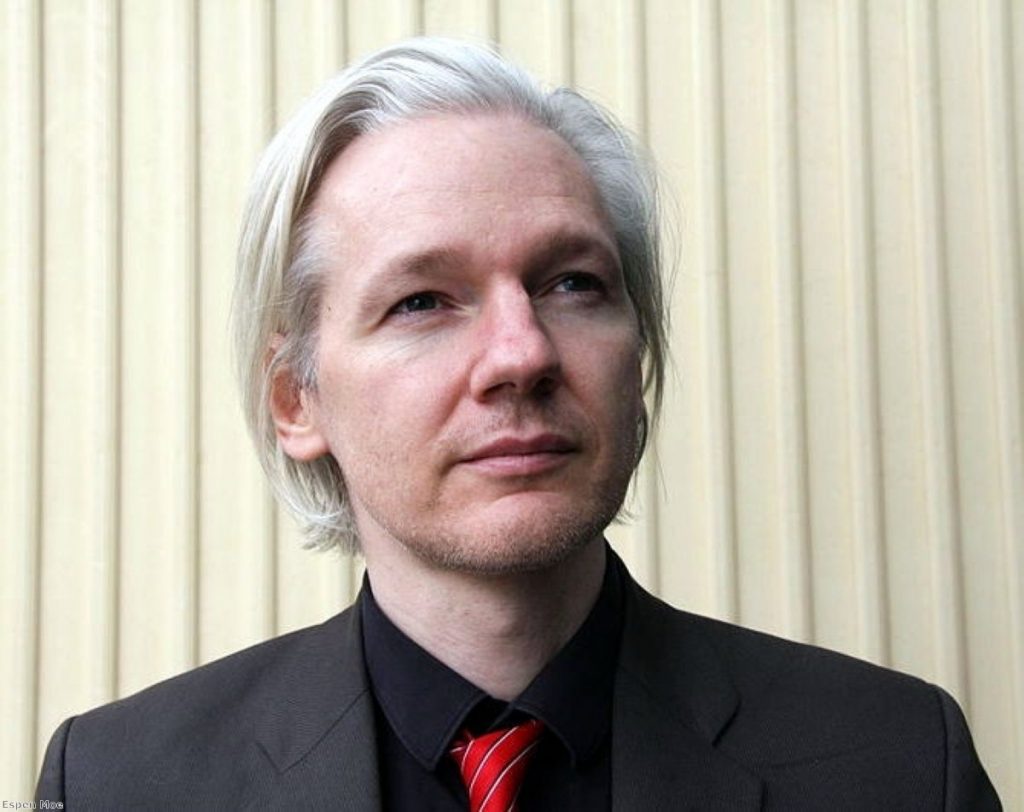Assange granted bail
By Ian Dunt
Julian Assange has been granted bail by Westminster magistrates court, leading to jubilant scenes among his supporters.
But in a confusing and rumour-filled afternoon in central London, the Swedish authorities decided to challenge the decision.
Mr Assange will have to remain in jail for up to 48-hours, until the appeal against the bail takes place.


Even if the Swedish challenge had not taken place Mr Assange would have spent the night in jail, as supporters scrambled to collect the £200,000 bail money demanded – in addition to two surities of £20,000 each.
Speaking outside the court, Mr Assanges’ lawyer, Mark Stephens, stressed that the bail money was extraordinarily high.
“It’s a pity he can’t use Mastercard or Visa in order to arrange that,” he said – a reference to two companies which had ended their relationship with the transparency campaigner.
“It will take time to gather that together. Until then we have an innocent man sitting in Dickensian conditions in Wandsworth jail.”
The money cannot be given as a cheque because they take several days to clear.
Mr Stephens added: “They [the Swedish authorities] clearly will not spare any expense to keep Mr Assange in jail.
“This is really turning in to a show trial. We will be in court in the next 48 hours, they haven’t given us the courtesy to say when. It is an unfortunate state of affairs … but given their history of persecuting of Mr Assange, it is perhaps not surprising.”
Regardless of what happens on the bail issue, the Wikileaks founder will have to return on January 11th.
His passport will remain with police, under bail conditions, and he must respect a curfew which will be monitored with an electronic tag.
The curfew lasts from 10:00 GMT – 14:00 GMT and 22:00 GMT – 02:00 GMT.
If he is released, Mr Assange will be staying with the owner of the journalists’ Frontline Club, Vaughan Smith.
Outside the court, Mr Smith said: “This case is important to me because of the way press freedoms are threatened.
“I’m not necessarily of the belief that every leak is right. What I believe is that someone needs considerable perspective to assess this. I don’t meet many people who think we’re well governed these days and I do think we might be better governed as a result.”
Mr Assange arrived at court in a police van this morning, where he posed for photographers by tapping his nose with his finger behind the heavily-tinted glass.
Inside the court room he was reported to be wearing a navy suit with an open white shirt. Several celebrity supporters again offered surity for his bail.
Around 100 freedom of speech and anti-war campaigners organised a demonstration outside as online activists continued launching attacks on companies which had distanced themselves from the whistleblowing website, including Amazon, PayPal, Visa and Mastercard.
Peter Tatchell, prominent human rights campaigner and supporter of Mr Assange, praised the activists who had hit out at the companies.
“Congratulations to Operation Payback and the anonymous hacktivists,” he said yesterday.
“They are right to hit back at the people who have attempted to drive WikiLeaks off the internet and cut its funding. If Washington can lean on these corporations, why shouldn’t the defenders of Wikileaks retaliate and exert pressure on them in the other direction?”
Mr Assange was represented by his new legal team, which includes prominant human rights lawyer Geoffrey Robertson.
Mr Assange is wanted in Sweden to answer charges concerning rape and coercion.
He was denied bail last week – a fairly common occurrence in rape cases. Activists argue that the timing of the case was too coincidental to not be linked with American efforts to have him silenced.

